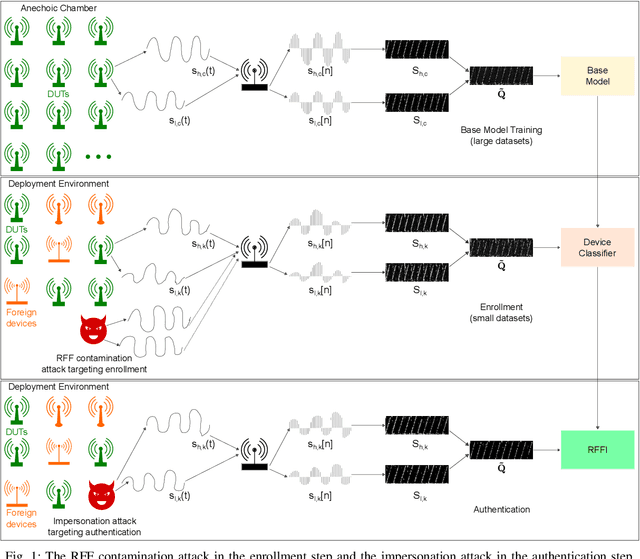Robustness and Security Enhancement of Radio Frequency Fingerprint Identification in Time-Varying Channels
Paper and Code
Oct 10, 2024



Radio frequency fingerprint identification (RFFI) is becoming increasingly popular, especially in applications with constrained power, such as the Internet of Things (IoT). Due to subtle manufacturing variations, wireless devices have unique radio frequency fingerprints (RFFs). These RFFs can be used with pattern recognition algorithms to classify wireless devices. However, Implementing reliable RFFI in time-varying channels is challenging because RFFs are often distorted by channel effects, reducing the classification accuracy. This paper introduces a new channel-robust RFF, and leverages transfer learning to enhance RFFI in the time-varying channels. Experimental results show that the proposed RFFI system achieved an average classification accuracy improvement of 33.3 % in indoor environments and 34.5 % in outdoor environments. This paper also analyzes the security of the proposed RFFI system to address the security flaw in formalized impersonation attacks. Since RFF collection is being carried out in uncontrolled deployment environments, RFFI systems can be targeted with false RFFs sent by rogue devices. The resulting classifiers may classify the rogue devices as legitimate, effectively replacing their true identities. To defend against impersonation attacks, a novel keyless countermeasure is proposed, which exploits the intrinsic output of the softmax function after classifier training without sacrificing the lightweight nature of RFFI. Experimental results demonstrate an average increase of 0.3 in the area under the receiver operating characteristic curve (AUC), with a 40.0 % improvement in attack detection rate in indoor and outdoor environments.
 Add to Chrome
Add to Chrome Add to Firefox
Add to Firefox Add to Edge
Add to Edge